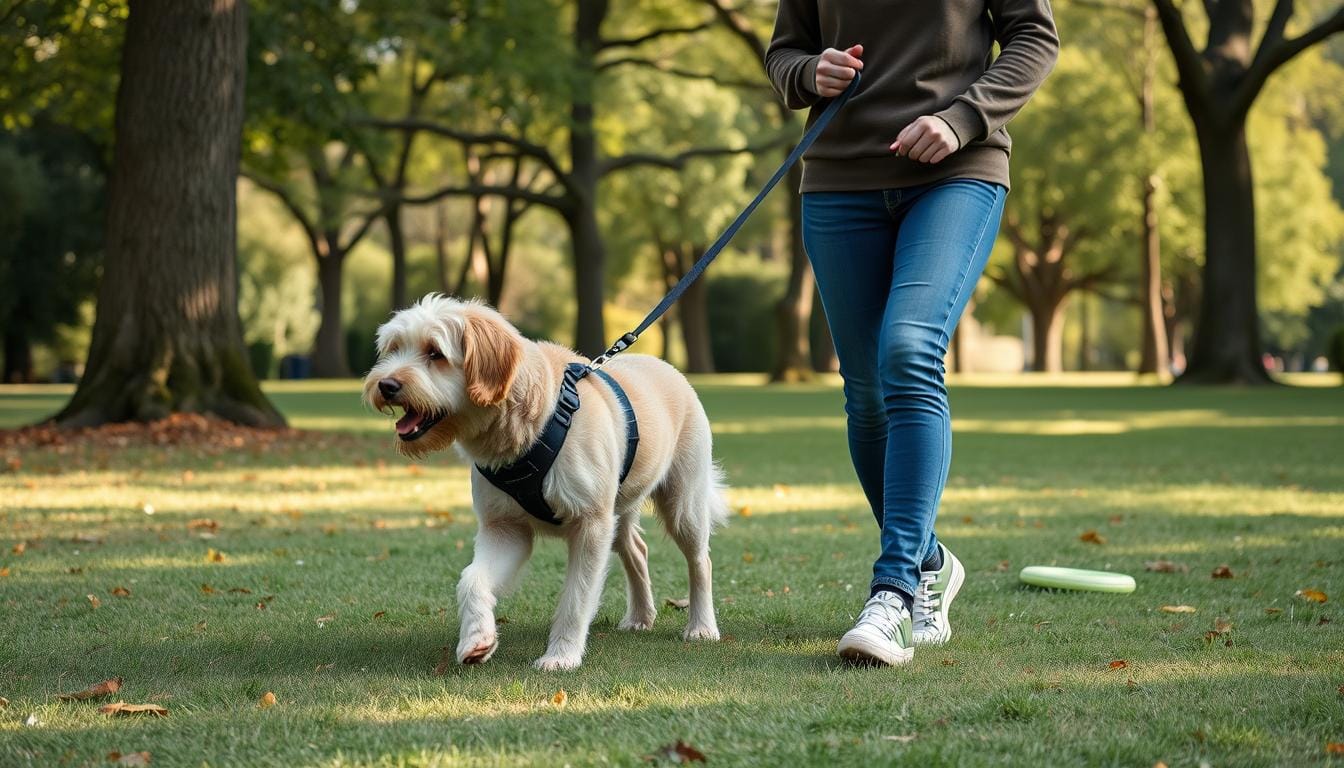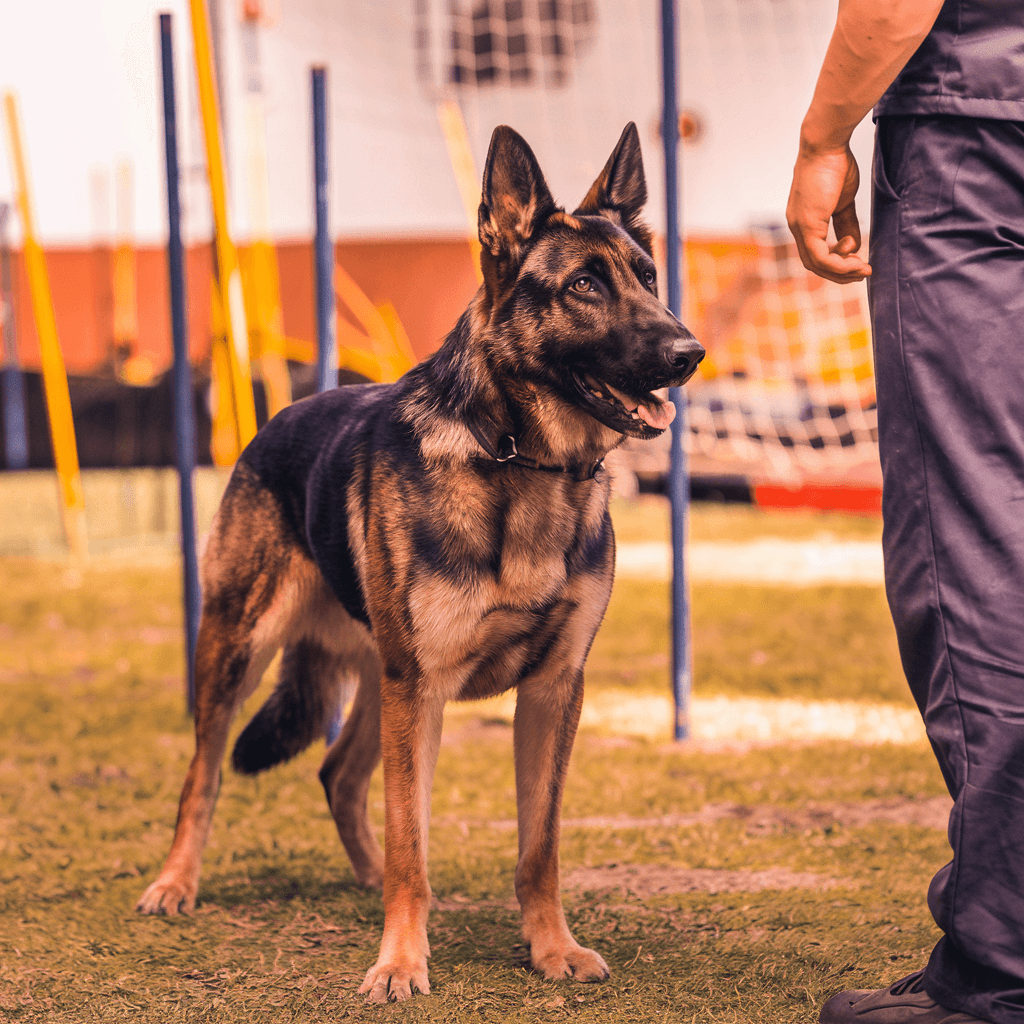Did you know dogs can sense human emotions instinctively? It’s true! Our canine companions are masters at reading our facial expressions, body language, and even our scent. This remarkable ability allows them to respond to our emotional states, offering comfort when we’re sad or joining in our excitement when we’re happy.
Dogs communicate with us using subtle cues too. A wagging tail, a tilt of the head, or a gentle paw on your leg are all ways they express their feelings and needs. This emotional intelligence forms the foundation of the deep bond we share with our furry friends.
As we explore the world of dog skin care, let’s remember that our pets’ well-being goes beyond just their physical health. It’s about nurturing the connection between us and ensuring they feel loved and cared for in every way.
Proper dog skin care is a crucial aspect of pet wellness. A healthy coat not only looks beautiful but also indicates your dog’s overall health. We’ll dive into essential tips for maintaining your pet’s skin health, from nutrition to grooming techniques.
Our furry friends rely on us to keep them happy and healthy. By understanding the basics of dog skin care, we can ensure our pets stay comfortable and thriving. Let’s explore how to keep your dog’s skin in top condition, promoting their well-being and strengthening your bond.
Key Takeaways
- Regular grooming stimulates natural oil production in dogs’ skin
- A balanced diet is crucial for maintaining healthy dog skin and coat
- Different coat types require specific care routines
- Limiting baths in winter helps prevent skin dryness
- Consulting a vet is important when skin issues arise
- Indoor humidity levels affect your dog’s skin health
- Proper nutrition and care can prevent many common skin problems
Understanding Your Dog’s Skin and Coat
A dog’s skin and coat are crucial for their health. They cover a big part of a dog’s body and need lots of protein to keep renewing. Good dog grooming and food are key to keeping their skin and coat healthy.
The Importance of Healthy Skin and Coat
Canine skin is thinner than ours and has layers, including a fat-rich layer. The skin and coat protect dogs from the outside world. They also help control body temperature and sense their surroundings.
Different Types of Dog Coats
Dogs have special hair follicles that let them have different coat types. Some dogs have one coat, while others have two. The outer layer protects, and the undercoat keeps them warm.
Signs of Healthy vs. Unhealthy Skin
Healthy dog skin is soft and clear, and their coat is shiny and smooth. Regular checks can spot problems early. Here’s how to tell if your dog’s skin is healthy or not:
| Healthy Skin Signs | Unhealthy Skin Signs |
|---|---|
| Smooth, supple texture | Dry, flaky, or scaly patches |
| Even coloration | Redness or inflammation |
| No odor | Strong, unpleasant odor |
| Minimal shedding | Excessive shedding or bald spots |
| No itching or scratching | Frequent scratching or biting at skin |
Regular grooming, the right food, and vet visits are key to your dog’s skin and coat health. If you see any unhealthy skin signs, see your vet for help.
Essential Nutrients for Optimal Skin Health
Good nutrition is key for healthy dog skin care. We’ll look at important nutrients for your pet’s skin and coat. These nutrients help keep your pet well.
The Role of Omega Fatty Acids
Omega fatty acids are vital for dog skin health. They make the skin stronger, reduce swelling, and make the coat shiny. Wild-caught fish, flaxseeds, chia seeds, and hemp oil are great sources.
Importance of High-Quality Protein
Protein is crucial for skin and coat health. Dogs need up to 35% of their daily protein for this. Lean animal proteins like chicken, beef, and eggs are best. They give essential amino acids for skin and fur growth.
Vitamins and Minerals for Skin Support
Vitamins and minerals are key for healthy dog skin. Vitamin E protects skin cells. Zinc helps skin heal and keeps the coat healthy. Biotin, found in eggs and whole grains, makes skin smooth and fur shiny.
| Nutrient | Function | Food Sources |
|---|---|---|
| Omega Fatty Acids | Reduce inflammation, promote skin health | Fish, flaxseeds, chia seeds |
| Protein | Support skin cell regeneration | Chicken, beef, eggs |
| Vitamin E | Protect skin cells from damage | Sweet potatoes, spinach |
| Zinc | Support skin healing | Beef, pumpkin seeds |
Always talk to a vet before changing your dog’s diet. They can give advice tailored to your pet’s needs. This ensures your pet stays healthy and well.
Proper Grooming Techniques for Healthy Skin
Dog grooming is key for healthy skin and pet wellness. It removes dirt, spreads natural oils, and stops tangles. How often you groom depends on your dog’s coat and lifestyle.
Brushing is crucial. Long-haired breeds like Yorkies and Lhasa Apsos need daily brushing to avoid mats. Shedding breeds should brush often to cut down on hair at home. Most dogs should brush 2-3 times a week.
Bathing is also vital. The ASPCA says to bathe every three. But, it really depends on your dog. Most dogs need baths every 6-8 weeks. Outdoor activities and skin issues can change this. Always use warm water and dog shampoo, as human shampoo can harm.
“Proper grooming is not just about appearance; it’s a vital part of your dog’s health care routine.”
If your dog has skin problems, talk to your vet about special shampoos or baths. Some conditions might need medicated products that sit on the coat for 5-10 minutes before rinsing.
| Coat Type | Brushing Frequency | Bathing Frequency |
|---|---|---|
| Long, silky, or curly | Daily | Every 6-8 weeks |
| Short to medium | 2-3 times per week | Every 6-8 weeks |
| Heavy shedders | Daily during shedding seasons | Seasonal (spring/fall) |
Grooming is more than just cleaning. It’s a chance to bond with your pet and check their skin. Regular grooming helps catch skin problems early, keeping your dog healthy.
The Impact of Hydration on Skin Health
Water is key for healthy dog skin. It helps with important body functions and keeps pets well. Let’s see how water affects your dog’s skin.
Ensuring Adequate Water Intake
Dogs need fresh water always. July is Pet Dehydration Awareness month. It’s a great time to think about your dog’s water needs.
Dogs can get dehydrated quickly, especially in hot weather. Make sure they always have clean water. Refresh it every day to keep their skin healthy.

Moisture in Dog Food
The food you choose affects your dog’s hydration. Dry kibble has 5-10% moisture, while wet food has more. To help with hydration, mix wet food with dry kibble or soak kibble in warm broth or water.
Humidity Considerations for Skin Care
Humidity affects your dog’s skin. In dry places, dogs might get skin problems. Use a humidifier at home to keep humidity right.
This helps prevent dry, flaky skin. It’s good for your dog’s overall health.
Remember, dogs use a lot of protein for skin and coat health. Proper hydration from water, food, and environment improves their skin and health.
Protecting Your Dog’s Skin from Environmental Factors
Environmental factors are key in dog skin care. We need to protect our pets from irritants that harm their skin. Knowing these factors and taking steps to prevent them helps keep our dogs’ skin healthy all year.
Seasonal changes can really affect our pets’ skin. In spring and fall, many dogs get allergies, affecting up to 15% of them. Symptoms include too much licking, scratching, and red skin. To fight these problems, we suggest:
- Using air humidifiers to keep moisture right
- Brushing your dog often to get rid of allergens and dead skin
- Avoiding strong cleaning products and deodorizers
- Keeping them away from extreme weather
Pet wellness is more than just treating symptoms. For dogs with ongoing skin issues, adding omega-3 fatty acid supplements to their diet can help. It may take 4-6 weeks to see results, but it can greatly improve their skin.
“Regular grooming and controlling the environment are crucial for healthy dog skin and preventing allergies.”
Here’s a list of common environmental factors that affect dog skin health:
| Environmental Factor | Potential Impact | Prevention/Treatment |
|---|---|---|
| Seasonal Allergies | Itching, redness, skin infections | Regular bathing, air purifiers, omega-3 supplements |
| Humidity | Yeast infections, hot spots | Dehumidifiers, drying after being outside |
| Extreme Temperatures | Dry skin, sunburn | Limit exposure, use dog-safe sunscreen |
| Indoor Pollutants | Skin irritation, allergic reactions | Regular cleaning, avoid harsh chemicals |
By tackling these environmental factors, we can greatly improve our dogs’ skin health and overall well-being. Remember, consistent care and attention to your dog’s environment are key to a happy, healthy pet.
Dog Skin Care: Tips for Seasonal Challenges
Caring for your dog’s skin is important all year. Each season has its own challenges. Let’s look at how to keep your dog’s skin healthy all year.
Winter Skin Care for Dogs
Cold weather can dry out your dog’s skin. Indoor heat and cold air make it flaky. Use moisturizing shampoos and limit baths to keep it moist.
Also, protect your dog’s paws from salt and ice. These can irritate their skin.
Summer Skin Protection
Summer has its own skin care needs. Dogs with light coats can get sunburned. Those with thick fur might get heat rashes in hot, humid weather.
Use sun protection and keep your dog hydrated. This helps keep their skin healthy in summer.

Addressing Seasonal Allergies
Seasonal allergies can harm your dog’s skin. Pollen is a problem in spring and summer. Autumn brings mold spores from leaves.
Dust mites can cause allergies all year. Watch for signs like excessive scratching or licking.
To soothe itchy skin, try oatmeal baths or hypoallergenic shampoos. Regular grooming removes allergens and spreads natural oils. A balanced diet with omega-3 and omega-6 fatty acids also helps.
Remember, pet wellness means adjusting your dog’s skin care for each season. If problems persist, talk to your vet for advice.
Common Skin Issues and Their Prevention
Dog skin care is key for pet health. Many dogs face skin problems that harm their well-being. We’ll look at common issues and how to stop them, keeping your pet’s skin healthy.
Allergies are a big skin problem in dogs. They cause itching, redness, and discomfort. Most allergies in dogs come from the environment. Regular grooming and baths help remove allergens from their coat.
External parasites like fleas, ticks, and mites also cause skin issues. Fleas can lay hundreds of eggs in a month. Using preventative medicines is crucial to fight these pests.
- Bacterial infections
- Yeast infections
- Hot spots
- Dry skin
These problems can come from poor diet or the environment. A balanced diet with omega-3 fatty acids can help. It can reduce itchiness and dry skin by up to 50%.
“Prevention is better than cure when it comes to dog skin care.”
Regular vet visits are vital. They can catch early signs of skin problems and give advice for your pet. Healthy dog skin is essential for your pet’s overall health.
Natural Remedies for Dog Skin Care
Natural remedies are a gentle way to care for your dog’s skin. They help keep your pet’s skin healthy and well. We’ll look at some good options to add to your dog’s grooming routine.
Oatmeal Baths for Soothing Skin
Oatmeal baths are great for itchy, irritated skin. They can calm down red, inflamed areas in just 10 to 15 minutes. Use lukewarm water and let your dog soak for about 10 minutes.
This natural remedy is often in hypoallergenic dog shampoos. It’s known for its soothing effects.
Benefits of Coconut Oil for Dog Skin
Coconut oil is good for many skin problems. It fights off eczema, allergies, yeast infections, and insect bites. You can apply a small amount to your dog’s skin or mix it into their food.
Herbal Supplements for Skin Health
Some herbs can improve your dog’s skin health from the inside. Chamomile, calendula, and green tea soaks are great for hot, itchy skin. These herbs can stop skin irritation from getting worse.
| Natural Remedy | Benefits | Application |
|---|---|---|
| Oatmeal Bath | Soothes itchy skin, reduces inflammation | 10-15 minute soak in lukewarm water |
| Coconut Oil | Treats various skin issues, moisturizes | Topical application or dietary supplement |
| Herbal Soaks | Calms irritated skin, prevents further issues | Apply as a soak or compress |
While natural remedies are good for dog skin care, always talk to your vet first. This is especially true for serious or ongoing skin problems.
The Role of Regular Veterinary Check-ups in Skin Health
Regular vet visits are key to keeping your dog’s skin healthy. These visits help prevent problems and keep your pet in great shape.
Vets check your dog’s skin, coat, eyes, ears, and mouth during these visits. They also look at vital signs, weight, and diet. They give advice on nutrition and exercise to help your dog’s skin.
Spotting skin issues early can make treatments easier and cheaper. Vets use tools like blood tests, X-rays, and ultrasounds to check your pet’s health.
- Blood tests to check organ function
- X-rays and ultrasounds for internal structures
- Physical examinations to detect subtle signs of problems
How often you need to take your dog to the vet depends on their age and health. Usually, dogs need vet visits once or twice a year for the best care.
| Check-up Component | Benefits for Dog Skin Care |
|---|---|
| Skin and Coat Examination | Identifies early signs of skin issues |
| Nutritional Assessment | Ensures diet supports healthy dog skin |
| Blood Tests | Detects underlying conditions affecting skin health |
| Vaccination Updates | Prevents diseases that may impact skin |
By making vet visits a priority, we can catch skin problems early. This saves time and money and keeps our pets looking great. Remember, vet visits are as important as feeding and playing with your dog for their health.
Creating a Comprehensive Skin Care Routine for Your Dog
It’s important to have a good skin care plan for your dog. This helps keep their skin healthy and them happy. We’ll show you how to make a routine that fits your life and meets your dog’s needs.
Daily, Weekly, and Monthly Care Tasks
Good dog grooming includes daily, weekly, and monthly tasks. Daily tasks like brushing and skin checks remove allergens and dead skin. Weekly grooming might be a deeper clean with a dog-specific dry shampoo.
Monthly, you can give them a bath with natural dog shampoo. You can also use conditioning fur masks. Studies show that a good skin care routine for a year can cut down on medication for dogs.
Tailoring Care to Your Dog’s Specific Needs
Every dog is different, so their skin care should be too. Short-haired dogs might only need a bath every 1-3 months. Medium and long-haired dogs need a bath every month.
Dogs with allergies need extra care because their skin is sensitive. Using products with vitamin E, oatmeal, or aloe vera can help. Always talk to your vet before trying new products, especially for dogs with allergies.
Incorporating Skin Care into Bonding Time
Make skin care a fun time with your dog. Brushing not only keeps their coat healthy but also strengthens your bond. Daily brushing is best for medium and long-haired dogs, while short-haired dogs need it weekly.
Do skin care during activities like walks or playtime. This keeps your dog active and their skin healthy. Adding these to your routine will make your dog happier and healthier.
















